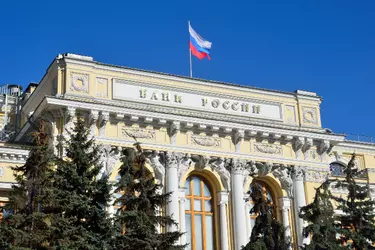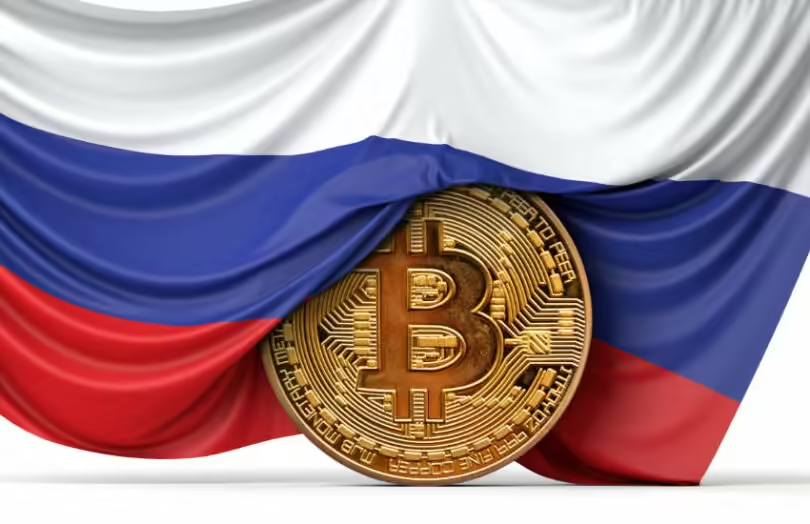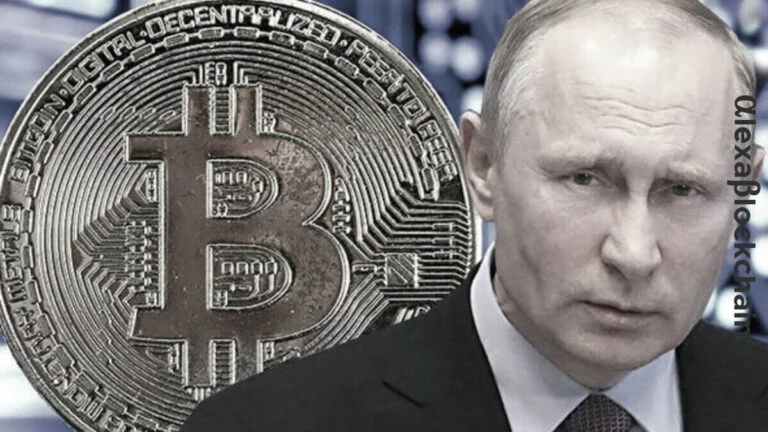Russia to Begin Using Cryptocurrencies in International Trade
In a move that underscores a significant shift in global economic strategy, Russia has announced its intention to begin using cryptocurrencies in international trade. This decision comes at a time when the country is grappling with extensive Western sanctions, particularly following the geopolitical tensions surrounding the Ukraine conflict. The adoption of digital currencies marks a bold step towards reducing dependency on the traditional financial systems dominated by Western powers, particularly the U.S. dollar.

Background: Sanctions and Economic Pressures
Russia has been under increasing economic pressure due to a series of sanctions imposed by Western countries. These sanctions have targeted key sectors of the Russian economy, including finance, energy, and defense, effectively isolating Russia from major international markets. In response, Russia has been exploring alternatives to the conventional financial systems, with cryptocurrencies emerging as a viable solution.
Cryptocurrencies, by their decentralized nature, offer a way for Russia to bypass traditional financial intermediaries and conduct trade directly with other nations. This allows Russia to engage in international trade without the need for the U.S. dollar, which has been the dominant currency in global commerce. The move to cryptocurrencies is part of a broader strategy to insulate the Russian economy from the impacts of sanctions and to maintain economic sovereignty.
How Cryptocurrencies Will Be Integrated into Trade
Russia’s plan to integrate cryptocurrencies in international trade involves several key components. First, the government has been working on developing a regulatory framework that would allow the legal use of digital currencies in international transactions. This framework is expected to address issues such as the legal status of cryptocurrencies, taxation, and measures to prevent illegal activities like money laundering.
Secondly, Russia is likely to leverage its strong relationships with countries that are also under Western sanctions or those that have shown interest in reducing their reliance on the U.S. dollar. For instance, nations like China, Iran, and other members of the BRICS group could be potential partners in this new economic strategy. By using cryptocurrencies, these countries can conduct trade with Russia without the need to go through traditional financial channels that are often influenced by Western policies.

Potential Benefits and Risks of Cryptocurrencies in International Trade
The adoption of cryptocurrencies for international trade offers several potential benefits for Russia. It provides a way to circumvent Western sanctions and continue trading on the global stage. It also reduces the country’s dependence on the U.S. dollar, which has been a long-term goal of Russian economic policy. Additionally, by adopting digital currencies, Russia can enhance its economic ties with countries that are similarly seeking to diversify away from the dollar-dominated financial system.
However, there are also significant risks associated with this strategy. Cryptocurrencies are known for their volatility, which could introduce instability into international trade. The value of digital currencies can fluctuate wildly within short periods, making it difficult to price goods and services accurately. Moreover, the global regulatory environment for cryptocurrencies is still evolving, and there is a risk that new regulations could be imposed that further complicate Russia’s use of digital currencies in trade.
Another potential challenge is the security of cryptocurrency transactions. While blockchain technology is generally considered secure, the digital nature of cryptocurrencies makes them susceptible to cyberattacks. Ensuring the security of these transactions will be crucial for Russia to successfully implement this strategy.

Global Implications
Russia’s decision to adopt cryptocurrencies for international trade could have far-reaching implications for the global financial system. If successful, this move could inspire other countries facing similar sanctions or those interested in reducing their reliance on the U.S. dollar to explore the use of digital currencies. This could lead to a more fragmented global financial system, with multiple currencies and financial networks operating independently of one another.
Additionally, Russia’s move could accelerate the development of global regulations around cryptocurrencies. As more countries begin to use digital currencies for international trade, there will likely be increased pressure on international bodies to establish clear rules and standards for these transactions.
Conclusion
Russia’s adoption of cryptocurrencies for international trade represents a strategic shift in response to the economic pressures of Western sanctions. While the move offers potential benefits, such as bypassing sanctions and reducing reliance on the U.S. dollar, it also comes with significant risks, including the volatility of digital currencies and the evolving regulatory environment. As Russia begins to implement this strategy, the world will be watching closely to see how it impacts the global financial system and whether other nations will follow suit.








 Bitcoin
Bitcoin  Ethereum
Ethereum  Tether
Tether  XRP
XRP  Solana
Solana  USDC
USDC  TRON
TRON  Dogecoin
Dogecoin  Lido Staked Ether
Lido Staked Ether  Cardano
Cardano  Wrapped Bitcoin
Wrapped Bitcoin  Hyperliquid
Hyperliquid  Wrapped stETH
Wrapped stETH  Bitcoin Cash
Bitcoin Cash  Sui
Sui  Chainlink
Chainlink  LEO Token
LEO Token  Avalanche
Avalanche  Stellar
Stellar  USDS
USDS  Toncoin
Toncoin  Shiba Inu
Shiba Inu  WETH
WETH  Litecoin
Litecoin  Wrapped eETH
Wrapped eETH  WhiteBIT Coin
WhiteBIT Coin  Hedera
Hedera  Binance Bridged USDT (BNB Smart Chain)
Binance Bridged USDT (BNB Smart Chain)  Monero
Monero  Bitget Token
Bitget Token  Ethena USDe
Ethena USDe  Polkadot
Polkadot  Coinbase Wrapped BTC
Coinbase Wrapped BTC  Uniswap
Uniswap  Aave
Aave  Pepe
Pepe  Pi Network
Pi Network  Dai
Dai  Aptos
Aptos  Ethena Staked USDe
Ethena Staked USDe  OKB
OKB  Bittensor
Bittensor  BlackRock USD Institutional Digital Liquidity Fund
BlackRock USD Institutional Digital Liquidity Fund  Jito Staked SOL
Jito Staked SOL  NEAR Protocol
NEAR Protocol  Internet Computer
Internet Computer  Cronos
Cronos  Ethereum Classic
Ethereum Classic  Ondo
Ondo